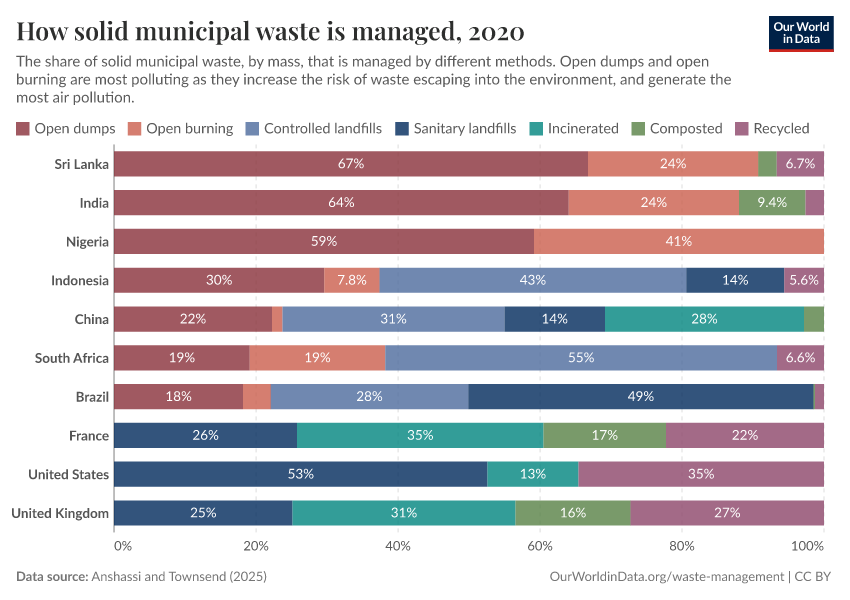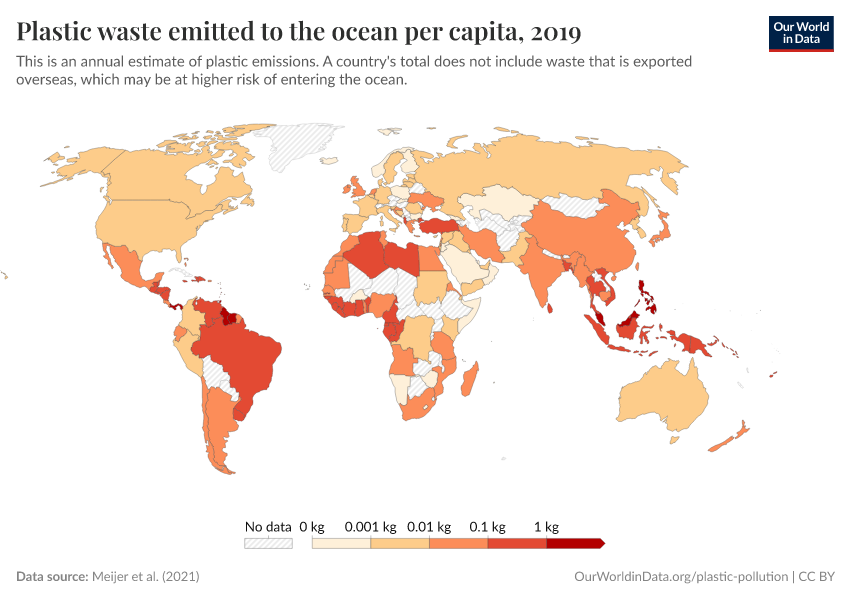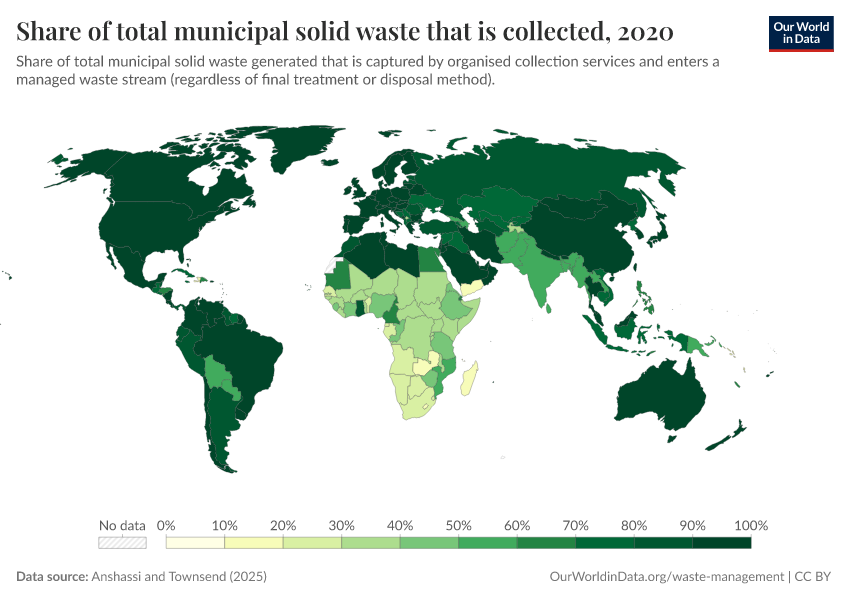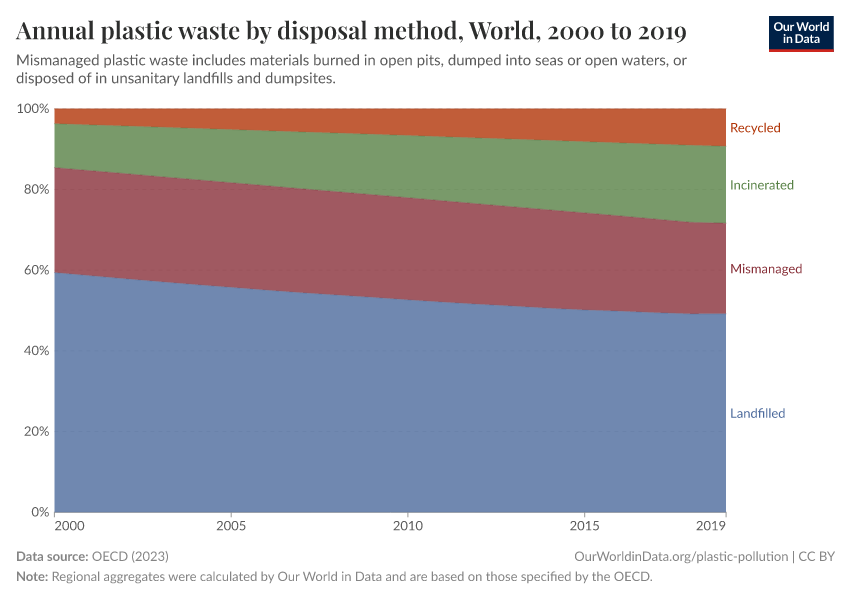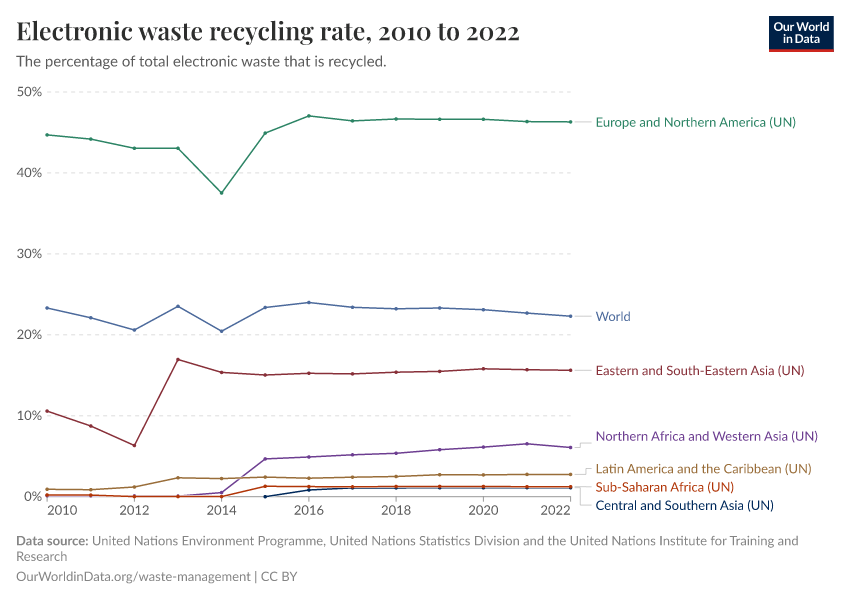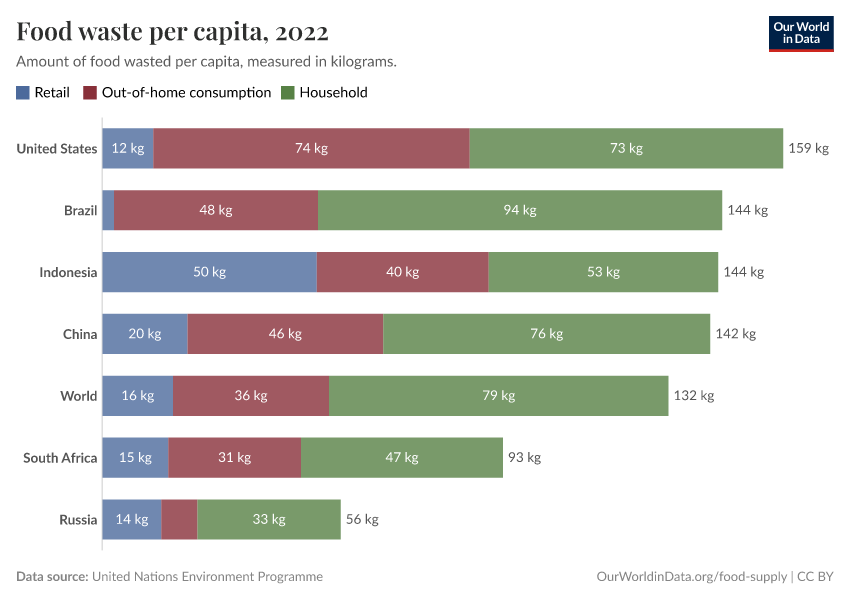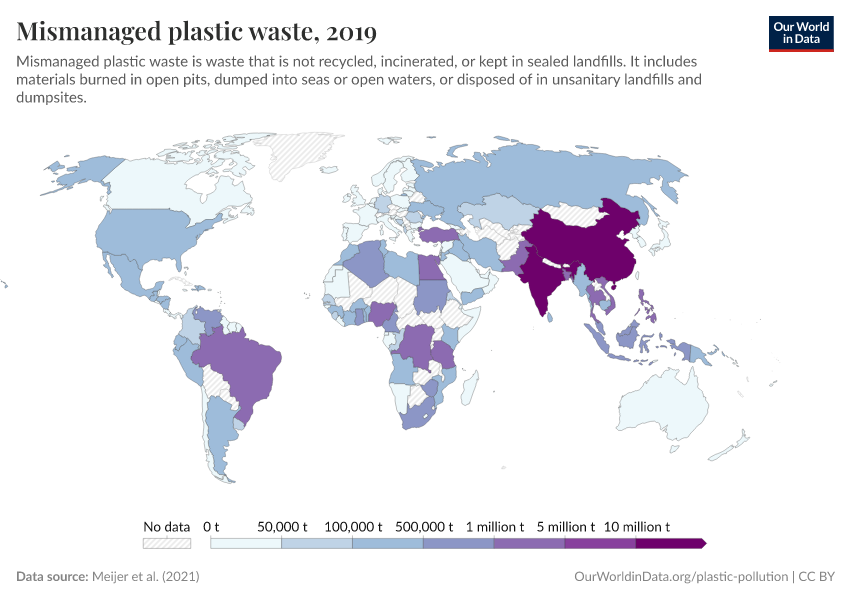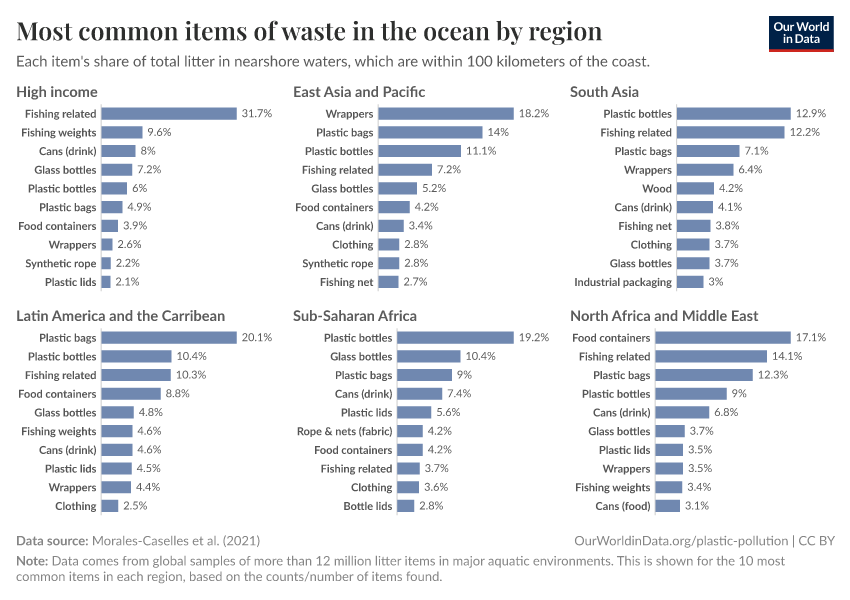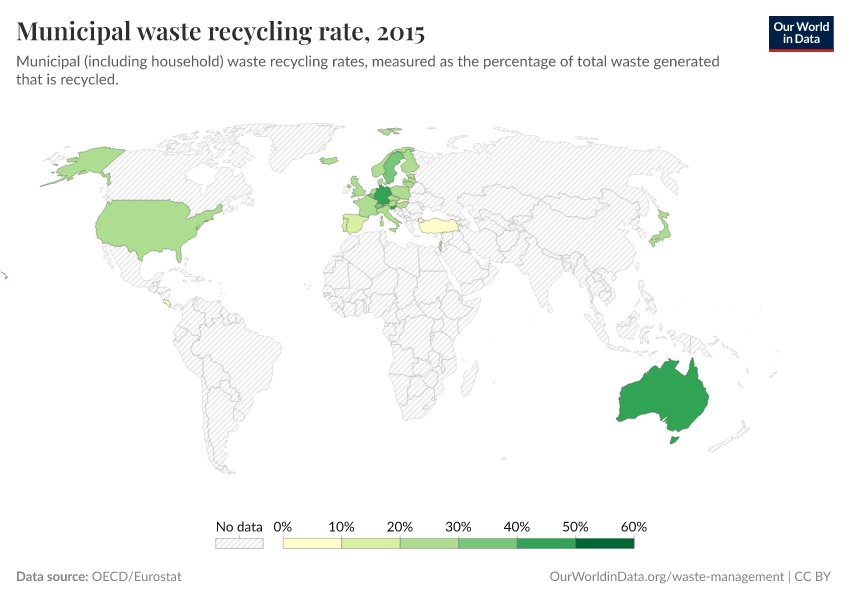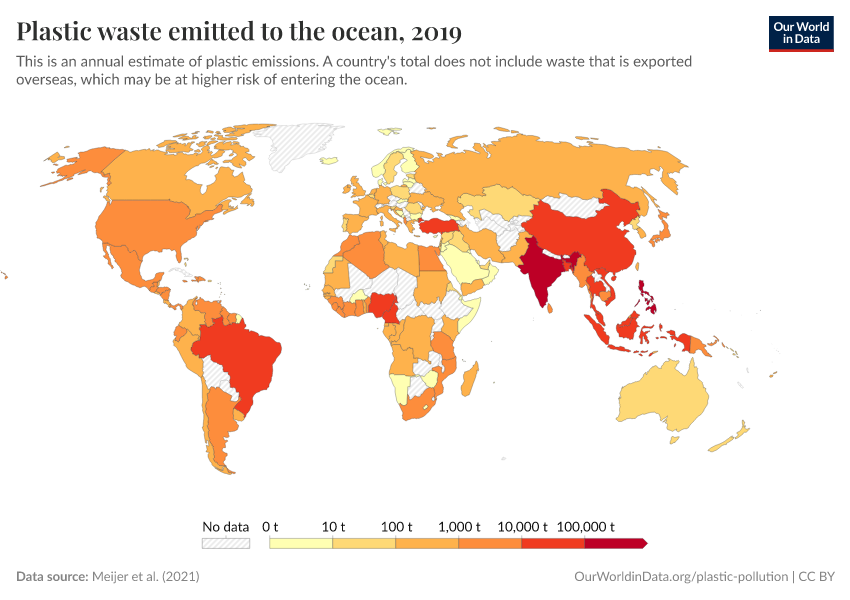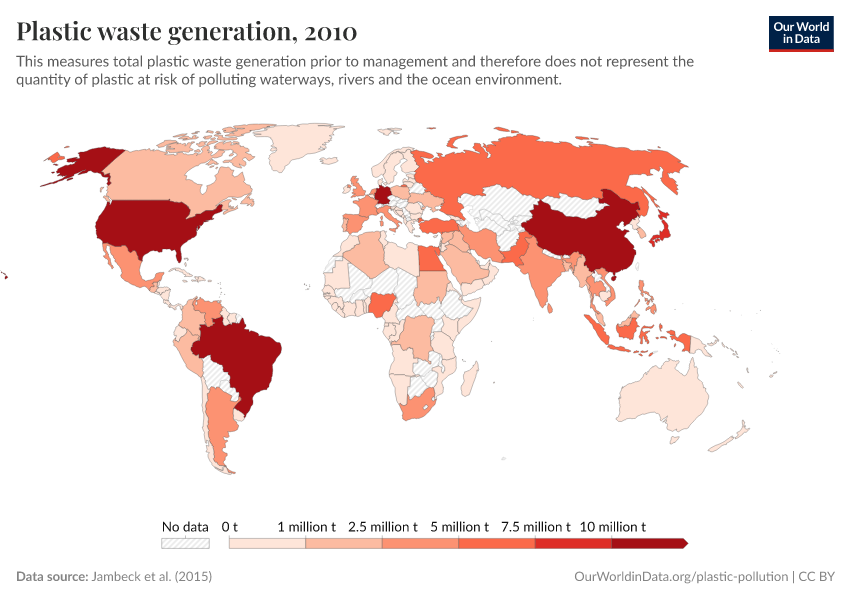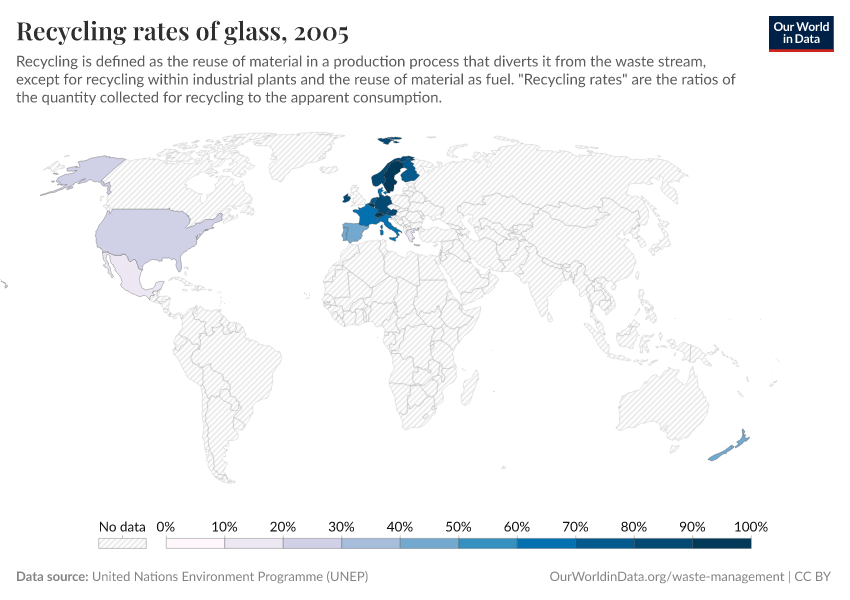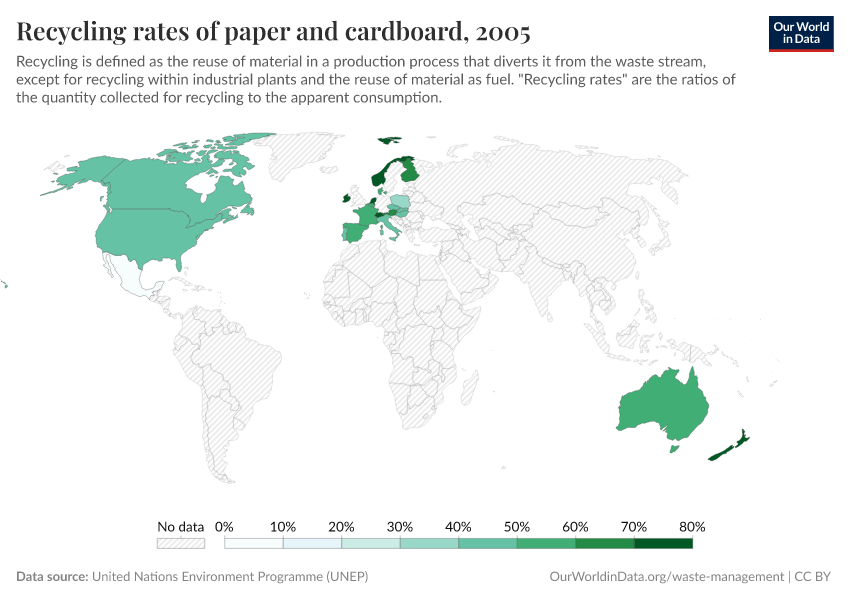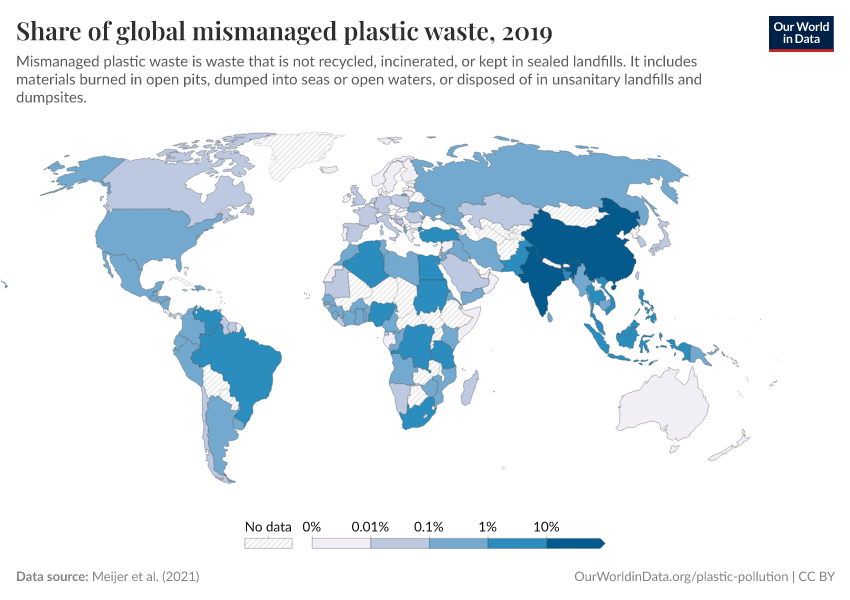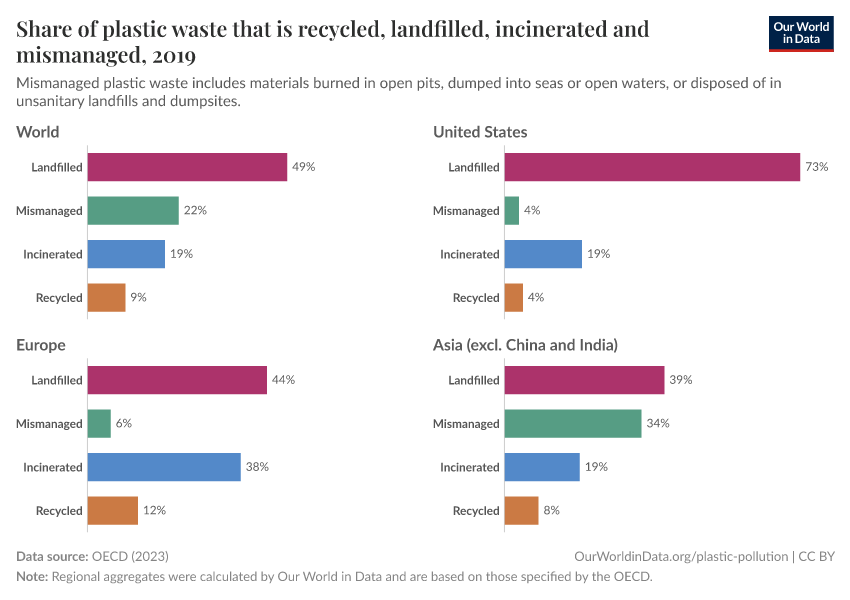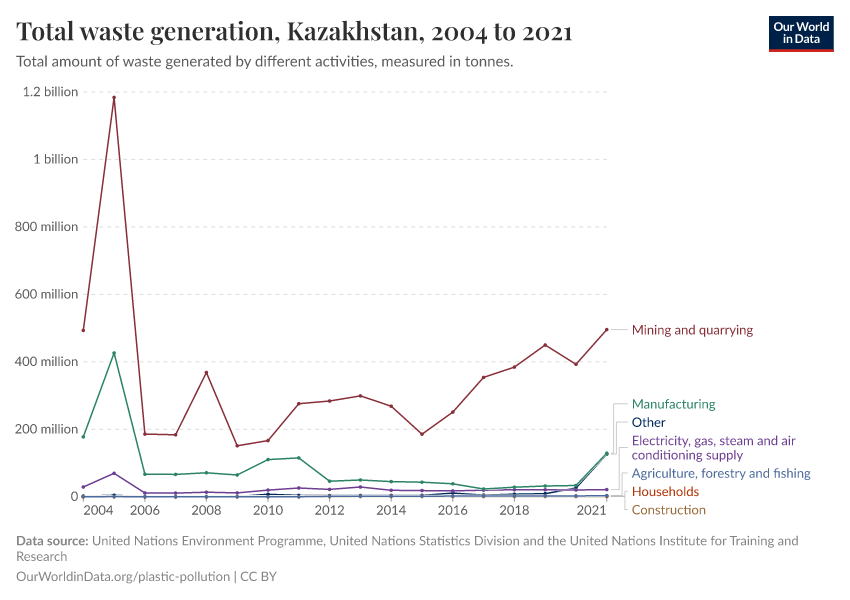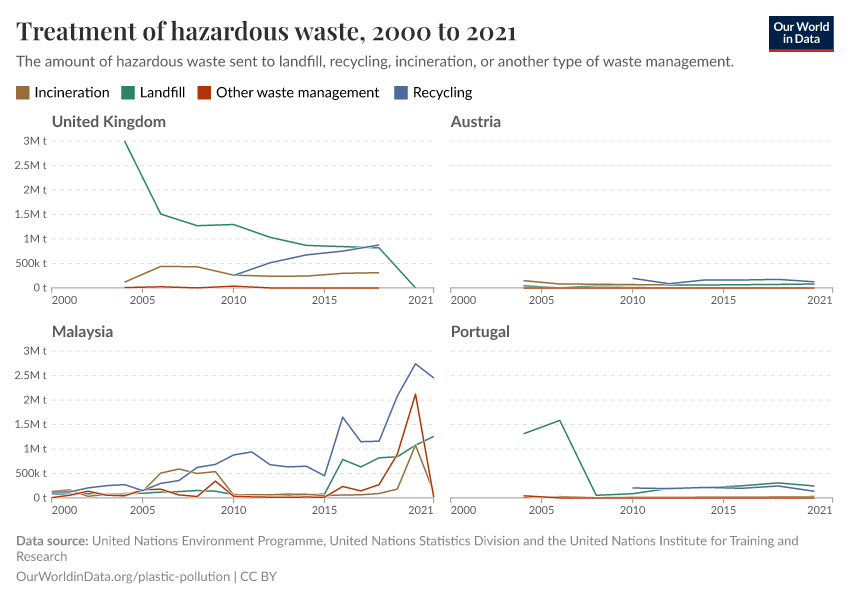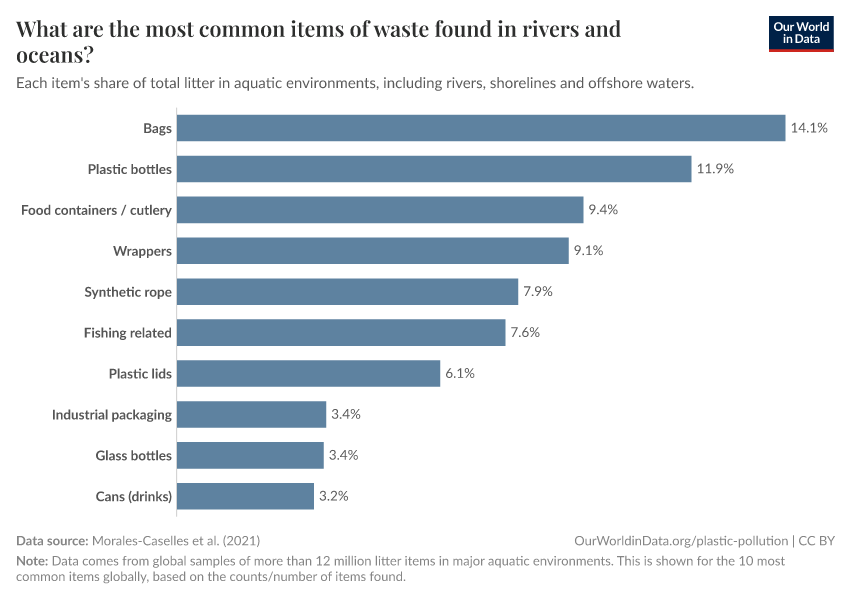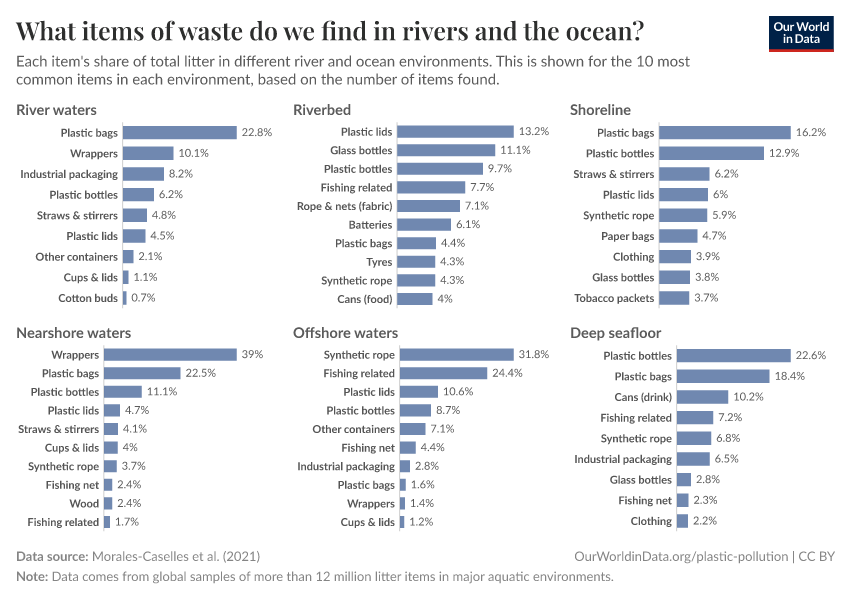Waste Management
As the world population and economies have grown, the global production of materials – such as plastics, paper, and aluminum – has increased significantly.
Without proper waste management systems, this growth in consumption leads to a significant increase in mismanaged waste. This leads to pollution of the ecosystems such as rivers, lakes, and the ocean.
Improving waste management practices can also help us to reduce the amount of raw materials generated. By recycling, we can reduce (although not eliminate) the production of new resources.
To protect the world’s ecosystems – and our health – we need to ensure that waste is managed correctly.
On this page, you find our data and visualizations on waste management.
Key Charts on Waste Management
See all charts on this topicCite this work
Our articles and data visualizations rely on work from many different people and organizations. When citing this topic page, please also cite the underlying data sources. This topic page can be cited as:
Hannah Ritchie (2023) - “Waste Management” Published online at OurWorldinData.org. Retrieved from: 'https://ourworldindata.org/waste-management' [Online Resource]BibTeX citation
@article{owid-waste-management,
author = {Hannah Ritchie},
title = {Waste Management},
journal = {Our World in Data},
year = {2023},
note = {https://ourworldindata.org/waste-management}
}Reuse this work freely
All visualizations, data, and code produced by Our World in Data are completely open access under the Creative Commons BY license. You have the permission to use, distribute, and reproduce these in any medium, provided the source and authors are credited.
The data produced by third parties and made available by Our World in Data is subject to the license terms from the original third-party authors. We will always indicate the original source of the data in our documentation, so you should always check the license of any such third-party data before use and redistribution.
All of our charts can be embedded in any site.

